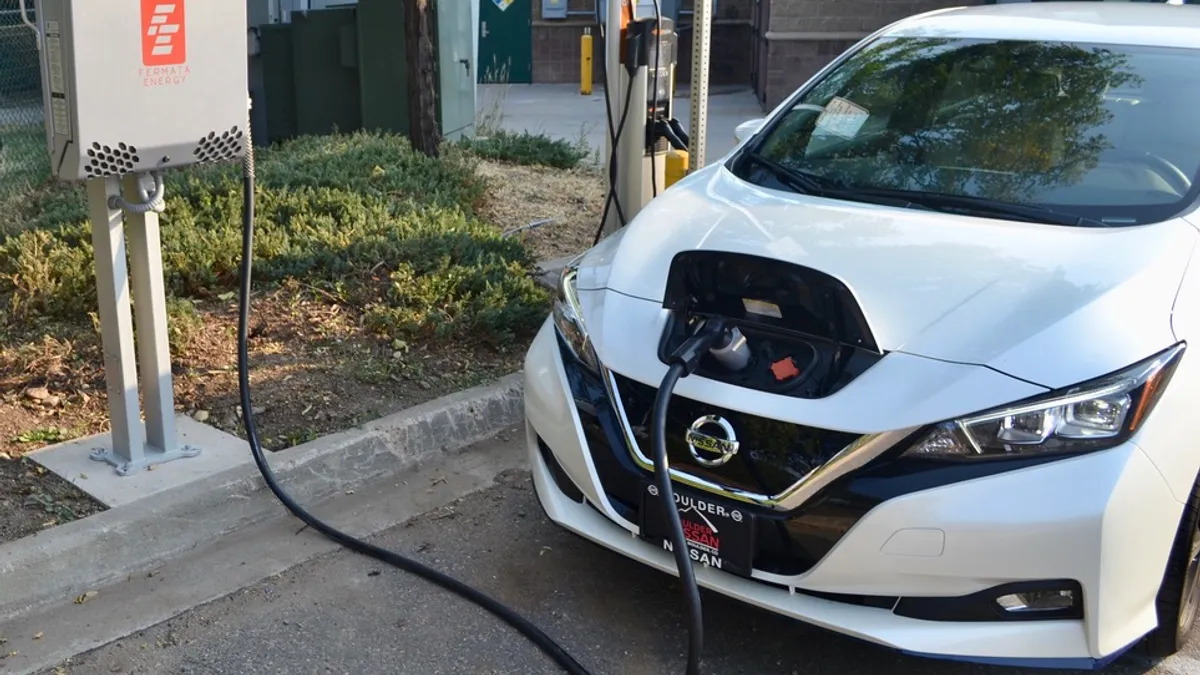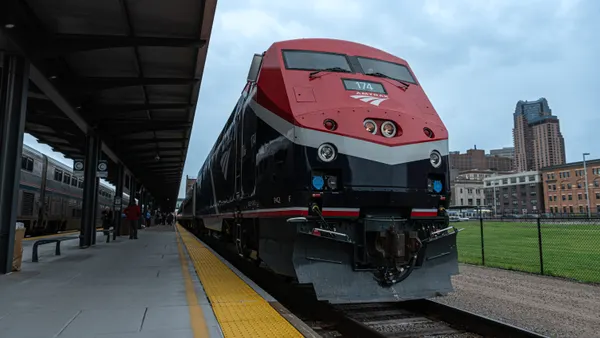Dive Brief:
- A coalition of 37 transportation, industry, environment, labor, health, equity and civic organizations on Thursday called on the Biden administration to support an equitable transition to electric vehicles (EVs), including public transit and heavy-duty vehicles, in any upcoming infrastructure package.
- The CHARGE Coalition is urging the federal government to use grants and incentives to expand public EV charging infrastructure, and to focus on communities that have traditionally been underserved by transportation or that have struggled with transportation-related pollution burdens.
- The group also urged the government to invest in electrifying public transit and ramp up service to reduce congestion and emissions and called on the medium and heavy-duty vehicle sector to be provided with significant incentives so it can electrify its fleets, too.
Dive Insight:
The group said electrification must be a key part of any infrastructure package advanced by the Biden administration and Congress, with transportation the sector most responsible for carbon emissions. And the group said there are plenty of opportunities ahead: A potential stimulus bill is being debated to help speed recovery from the coronavirus pandemic, while the Fixing America's Surface Transportation Act (FAST Act) must be reauthorized by the end of September.
Chris Rall, outreach director for advocacy group Transportation for America, a coalition member, said there is room for optimism about investment in more environmentally friendly infrastructure given the moves Biden has already made; Congress' bipartisan investment of billions of dollars to help support public transit during the pandemic in various rescue packages shows there is a willingness to make up for years of underinvestment. Meanwhile, other members of the administration believe the need to address climate change is urgent.
The CHARGE Coalition said the federal government can lead the way on electrification through incentive programs. Those could include a program that provides funds for installing EV charging infrastructure — partially for micromobility — and a rebate program for lower levels of government and other private and public groups for installing chargers at apartment buildings and workplaces.
Regarding transit, the group said there should be more funding made available to support agencies' fleet electrification efforts. It also called for a $20 billion annual operating support program to incentivize expanded public transportation service.
Rall said the last year has shown how critical public transportation is. "There's really a new opportunity here, now that folks are seeing how essential transit is and we know we're going to be coming out and going about our business again, folks have an interest in building back to really shift the paradigm of how to invest in transportation," he said.
Electrifying entire fleets of vehicles might be a difficult endeavor, but there are indications that governments and companies are starting to move in that direction. Ford last month said it will spend $29 billion through 2025 on EVs and autonomous vehicles in a bid to lead what it called a "revolution" in transportation, while Boston late last year unveiled a roadmap so every household can be within a 10-minute walk of an EV car-share or charging station.
CHARGE said electrification efforts must focus on workforce development to ensure that employees are not left behind in a changing job market. And it said a focus on equity, which would look to help communities that have traditionally suffered the worst effects of air pollution, would mean incentives would go where they could have the most impact.
"When you think about communities next to ports, or in places where they have poor air quality, if we can target the improvements to places that are going to make the biggest difference for people, that's going to help us to not only advance our emissions reduction goals, but also improve lives for people who most need that improvement," Rall said.













